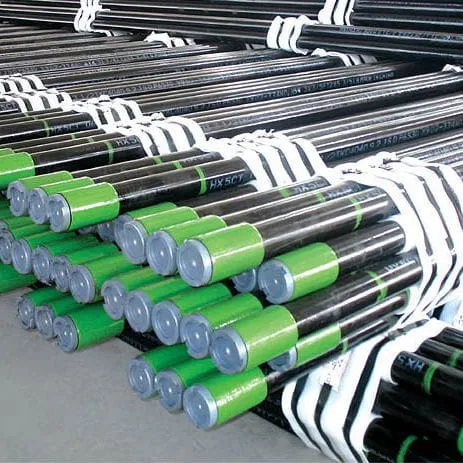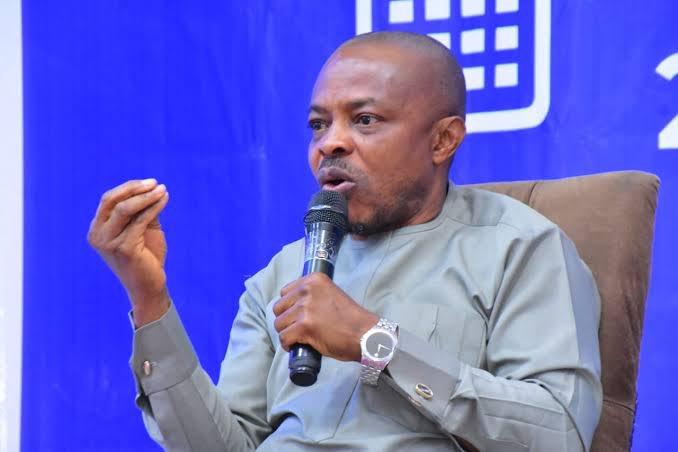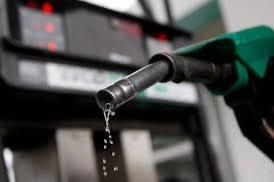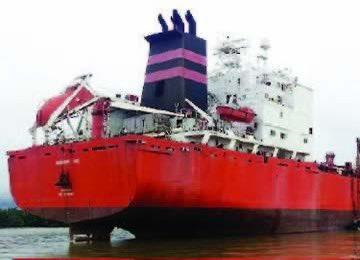NNPCL halts N24 trillion in fuel imports and sources directly from Dangote refinery.
Mele Kyari, the Group Chief Executive Officer of NNPC, revealed this information on Monday during the current conference hosted by the Nigerian Association of Petroleum Explorationists in Lagos. The conference is focused on the theme ‘Addressing the Nigerian Energy Trilemma: Energy Security, Sustainable Growth, and Affordability.’
He said, “Today, NNPC does not import any product, we are taking only from domestic refineries.”
Kyari refuted the claims suggesting that the NNPC was undermining the operations of the Dangote refinery.
“The point is very far from it and I’m going to speak to it straight. We are very proud part-owners of Dangote refinery, no doubt about it. We saw an opportunity that there is a clear market for at least 300,000 barrels of our production; we know that as time moves on, people will start struggling to find markets for their production.
“It will happen, It’s already happening. Oil is found, as you know, in many unexpected locations across the world and people have choices. Therefore we saw an opportunity to log supply to the domestic refinery, not just Dangote but any other refinery that operates in the country, so it was a very informed business decision.
“Therefore, from day one, we knew that it is to our benefit to supply crude oil to the domestic refinery, so we don’t need to be persuaded; we don’t need anyone to talk to us, there is no need for any pressure from the streets for us to do this. We are already doing this.
“We should never forget that Nigerian crude is ’Lamborghini crude’, if we choose that every product that we have in this country must come from domestic production, then we must deal with pricing. Otherwise, out there in the global market, everybody buys Nigerian crude and blends it with dirtier crude to process, a lot of you will confirm this. So, no one takes Nigerian crude except one or two refineries that I know. Straight processing of Nigerian crude, nobody does this, because you do have a gap in value if you do this.
“Therefore, as a country, and I believe this strongly also, that we must process all the crude that we produce in the country to the optimum. You can do intermediate products and sell to the market, you are still adding value. You don’t have to sell gasoline that is coming from Nigerian production.
“You can do something different so you can process it domestically, but it’s going to be high quality. As we all know and it’s very clear in the media that we are selling high-quality products, that’s very true but you need not do this. You are driving a Keke-Napep and you want Lamborghini fuel, you do not need it. So, the quality issue is a relative thing, it’s by geography, by location, and we will do everything possible to make sure that we domesticate this.
“Today, NNPC does not import any product, we are taking only from domestic refineries. But I also know that we are working jointly with the government to make sure that we manage the issue around prices if we have to source all our supply from the domestic market. It will be an issue and we are already resolving it. I can confirm that substantial work has been done and this will no longer be an issue.”
NNPCL halts N24 trillion in fuel imports and sources directly from Dangote refinery.
Mele Kyari, the Group Chief Executive Officer of NNPC, revealed this information on Monday during the current conference hosted by the Nigerian Association of Petroleum Explorationists in Lagos. The conference is focused on the theme ‘Addressing the Nigerian Energy Trilemma: Energy Security, Sustainable Growth, and Affordability.’
He said, “Today, NNPC does not import any product, we are taking only from domestic refineries.”
Kyari refuted the claims suggesting that the NNPC was undermining the operations of the Dangote refinery.
“The point is very far from it and I’m going to speak to it straight. We are very proud part-owners of Dangote refinery, no doubt about it. We saw an opportunity that there is a clear market for at least 300,000 barrels of our production; we know that as time moves on, people will start struggling to find markets for their production.
“It will happen, It’s already happening. Oil is found, as you know, in many unexpected locations across the world and people have choices. Therefore we saw an opportunity to log supply to the domestic refinery, not just Dangote but any other refinery that operates in the country, so it was a very informed business decision.
“Therefore, from day one, we knew that it is to our benefit to supply crude oil to the domestic refinery, so we don’t need to be persuaded; we don’t need anyone to talk to us, there is no need for any pressure from the streets for us to do this. We are already doing this.
“We should never forget that Nigerian crude is ’Lamborghini crude’, if we choose that every product that we have in this country must come from domestic production, then we must deal with pricing. Otherwise, out there in the global market, everybody buys Nigerian crude and blends it with dirtier crude to process, a lot of you will confirm this. So, no one takes Nigerian crude except one or two refineries that I know. Straight processing of Nigerian crude, nobody does this, because you do have a gap in value if you do this.
“Therefore, as a country, and I believe this strongly also, that we must process all the crude that we produce in the country to the optimum. You can do intermediate products and sell to the market, you are still adding value. You don’t have to sell gasoline that is coming from Nigerian production.
“You can do something different so you can process it domestically, but it’s going to be high quality. As we all know and it’s very clear in the media that we are selling high-quality products, that’s very true but you need not do this. You are driving a Keke-Napep and you want Lamborghini fuel, you do not need it. So, the quality issue is a relative thing, it’s by geography, by location, and we will do everything possible to make sure that we domesticate this.
“Today, NNPC does not import any product, we are taking only from domestic refineries. But I also know that we are working jointly with the government to make sure that we manage the issue around prices if we have to source all our supply from the domestic market. It will be an issue and we are already resolving it. I can confirm that substantial work has been done and this will no longer be an issue.”














